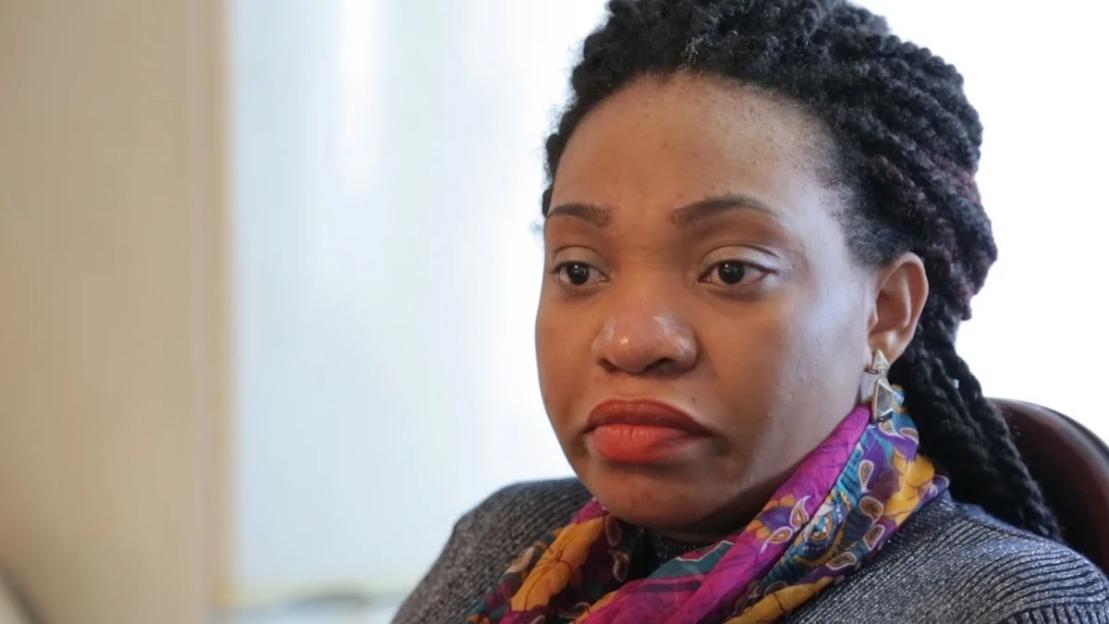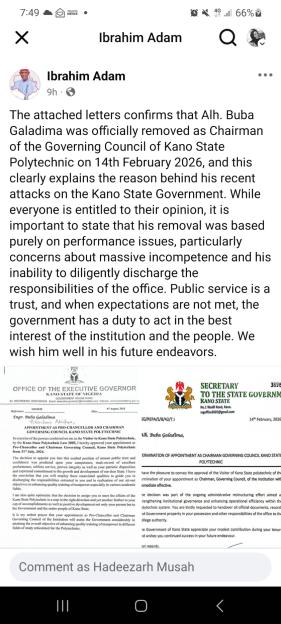Table of Contents
- Uchechi Okwu-Kanu's Reaction
- Court Sentencing Details
- Comments on the Judge's Performance
- Legal Arguments Presented
Uchechi Okwu-Kanu, the wife of Nnamdi Kanu, the convicted leader of the banned Indigenous People of Biafra, has responded to the life sentence handed down to her husband by the federal high court on Thursday.
Kanu's wife asserted that a judge cannot require a defendant to present a defense against terrorism-related charges without first outlining the specific written law under which the individual is being tried.
Uchechi claimed that the judge followed a script provided to him when sentencing Kanu to life imprisonment.
She also stated that the judge struggled to articulate certain words in his own written judgment.
DAILY POST reported that the Federal High Court in Abuja sentenced Nnamdi Kanu to life imprisonment on Thursday.
Justice James Omotosho delivered this significant ruling in the trial of the IPOB leader.
DAILY POST noted that Omotosho had previously ruled against him based on allegations brought by the Department of State Services.
In his judgment, the judge maintained that the prosecution provided sufficient and credible evidence to support its case.
He pointed out that Kanu did not present a defense, instead opting to rely solely on the prosecution's evidence—a decision the court stated left it with no choice but to convict.
However, Kanu's wife remarked: “In Nigeria, a judge cannot compel a defendant to present a defense on terrorism-related charges without first reading the written law under which the court is trying that individual. The Constitution of the Federal Republic of Nigeria, 1999, as amended, in section 36, is likely familiar to everyone now.
“It stipulates that a person shall not be convicted of a criminal offense unless the offense is defined and the penalty prescribed in a written law. What Omotosho has done today resembles a script, a written script for him to read. Everyone heard him. Everyone saw that he was reading a script handed to him and that he struggled to pronounce some of the words in his own written judgment. How intriguing. How intriguing.
“I felt compelled to quickly tweet and post about the miscarriage of justice today regarding how Omotosho disregarded the Constitution's requirement that no one can be convicted under an unwritten or unknown offense.
“He compelled Mazi Nnamdi Kanu to plead under a repealed law, which Mazi Nnamdi Kanu refused to accept. So, show me where it is documented before I can present a defense. And that opportunity never arose.
“Omotosho blatantly refused to issue written rulings on serious applications. You could hear him reading. You could hear him recounting thousands of lines of testimony.
“Yet, he refused to provide a written ruling, which he should have done first but did not. He instructed Mazi Nnamdi Kanu to include all objections in a final address, then obstructed the final address. If you were Mazi Nnamdi Kanu, you would understandably be as outraged as he was this afternoon.
“You cannot instruct me to submit my final address in writing and then block it. Mazi Nnamdi Kanu has the right to submit a final address in writing. However, Omotosho obstructed that and chose to read out what he referred to as counts.”
Frequently Asked Questions (FAQ)
What was the reaction of Uchechi Okwu-Kanu to the life sentence?
Uchechi Okwu-Kanu expressed that the judge followed a script and did not adhere to the legal requirements, arguing that Kanu was not given a fair chance to present a defense.
What were the grounds for Nnamdi Kanu's conviction?
The conviction was based on what the court deemed sufficient and credible evidence presented by the prosecution, with Kanu opting not to enter a defense.
What legal arguments did Uchechi Okwu-Kanu make regarding the trial?
Uchechi argued that the judge violated constitutional requirements by not presenting the written law under which Kanu was charged, thereby denying him a fair trial.







